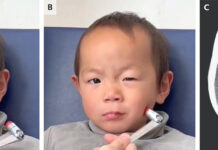Following the successful outcome of preclinical studies, scientists are ready to trial a new cancer vaccine in humans.
The vaccine has been developed by a research team based in The Translational Research Institute in collaboration with the University of Queensland. The lead research associate professor of the study, Kristen Radford says that the vaccine has potential for treatment of a variety of malignancies and blood cancers, a major breakthrough in cancer vaccinations.
She further stated:
“We are hoping this vaccine could be used to treat blood cancers, such as myeloid leukaemia, non-Hodgkin’s lymphoma, multiple myeloma, and paediatric leukaemias, plus solid malignancies including breast, lung, renal, ovarian, and pancreatic cancers, and glioblastoma,” she said.
“Our new vaccine is comprised of human antibodies fused with tumour-specific protein, and we are investigating its capacity to target human cells while activating the memory of the tumour cells.”
The vaccine offers several key advantages over the existing cancer vaccines
Associate professor Radford says that the vaccine has already shown to be quite promising in early clinical trials.
“First, it can be produced as an ‘off the shelf’ clinical-grade formulation, which circumvents the financial and logistical issues associated with patient-specific vaccines,” she said.
Additionally,
“Secondly, this prototype vaccine targets the key tumour cells required for the initiation of tumour-specific immune responses, thereby maximising potential effectiveness of treatment, while minimising potential side effects.”
The study is expected to become a basis of further research in finding a safe and effective cancer vaccine.
“We are very happy to see our research published in a prestigious journal, and we hope our continued work towards finding a safe and effective cancer vaccine will benefit cancer patients in the future,” she said.
References
Pearson, et al. (2020). Human CLEC9A antibodies deliver Wilms’ tumor 1 (WT1) antigen to CD141+ dendritic cells to activate naïve and memory WT1‐specific CD8+ T cells. Clinical & Translational Immunology DOI: https://doi.org/10.1002/cti2.1141




